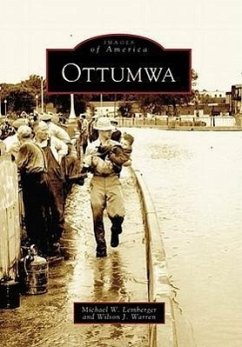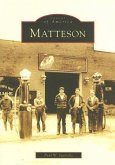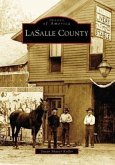Long one of Iowa's most important industrial cities, Ottumwa was established on the banks of the Des Moines River in 1843. The river was both a blessing, providing transportation as well as ice for early meatpacking plants, and a curse, inundating the city with periodic floods until it was tamed in the latter half of the 20th century. This collection of vintage photographs highlights the city's industries and laboring people, the river's role in the shaping of the community, and Ottumwa's unique place in history as the location of the Iowa Coal Palace and Industrial Exhibits of 1890 and 1891 and the Ottumwa Naval Air Station during the World War II era.
Hinweis: Dieser Artikel kann nur an eine deutsche Lieferadresse ausgeliefert werden.
Hinweis: Dieser Artikel kann nur an eine deutsche Lieferadresse ausgeliefert werden.







